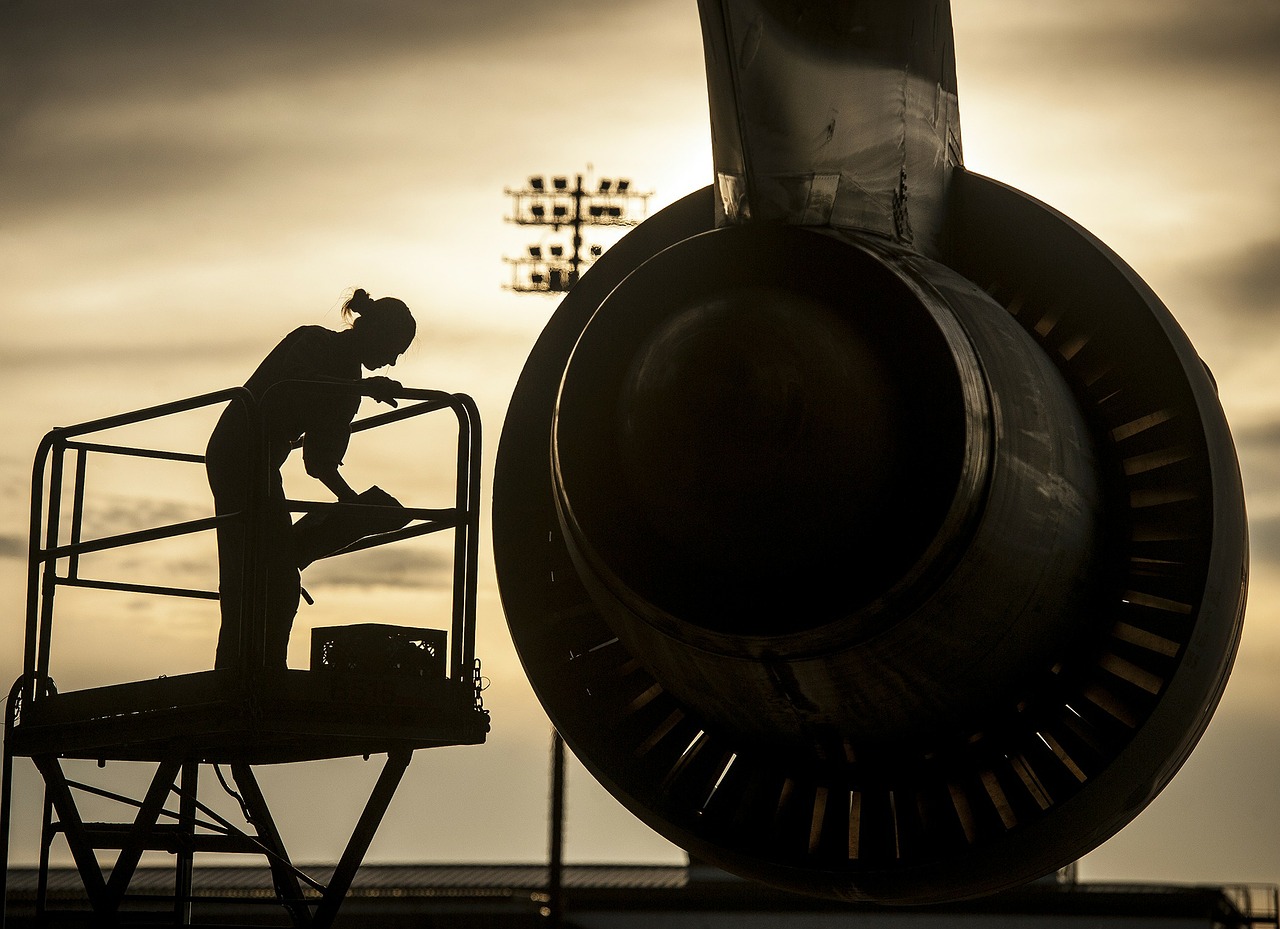Keeping aircraft systems, components and equipment in top working order requires physical and mental sharpness and stamina. Since maintainers are already physically active, perhaps some information about injury avoidance and how to increase mental stamina would be helpful.
Some of the most common health stressors can be the result of:
- Repetitive movements and tasks
- Continuous use of hands and tools
- Exposure to harsh conditions
- Working with hazardous equipment/supplies
- Environmental thermal stressors
- Noise and high-volume sounds
- Frequent standing and walking
- Wearing bulky or restrictive safety or protective wear/gear
- Working in cramped spaces and awkward places
Ergonomics and physical upgrades:
- Have at least two pairs of shoes/boots and alternate days wearing them. Replace often, as your feet support your legs, pelvis and spine and appreciate good care.
- Avoid neck flexion (looking down) for extended periods of time — flattens the curve of your neck which can lead to poor neurological function from postural alterations.
- When sitting, rest fully on seat cushion and avoid perching on the front edge of your seat — lessens circulation problems in your thighs and lower legs.
- Train yourself to be ambidextrous when possible — use non-dominant hand/arm, bend on non-dominant leg — balances brain function and reduces overuse on dominant sided joints.
- When crouched or cramped in uncomfortable positions, remind yourself to breathe deeply to oxygenate brain and muscles. This skill also trains you to calm yourself when stressed.
- Maintain healthy blood glucose levels by eating regularly. Pack your own meals and healthy snacks – 1/3 complex carbs, 1/3 protein, 1/3 good fats. Choose protein bars with ≤12g sugar.
- Weight-lifting and cardio exercise for strength training to increase endurance and resiliency.
- Gentle activities like stretching, or restorative Yoga (i.e., legs up the wall) counterbalance walking and standing. It’s important to regularly stretch legs and shoulders to stay flexible.
Improving your physical function will lead to improved brain efficiency from enhanced biochemistry, circulation and digestion.
Some of your mental job stressors involve:
- Inspecting all aspects of aircraft
- Repetition of tasks and processes
- Constant decision making
- Working in safety-first, schedule-driven environments
- Critical thinking and problem solving
- Quality control analysis and implementation
- Communications skills — reading, speaking, listening, typing
- Face-to-face communication with supervisors, group or team
Hydration, ideal food choices, sleep/rest and thermal stressor recovery are critical components to staying mentally and physically fit. I like to describe the central nervous system (brain and spinal cord) as a simplistic yet elegant two-way street — what goes in effects what comes out. This makes a great case for getting good at the basics.
Combating stress and staying mentally sharp:
- Consistent hydration — supports attention and mental clarity. Also helps reduce cravings. Strive to drink half your body weight in oz’s of filtered water every day.
- Keep blood glucose levels as flat as possible by eating/snacking every 3-4 hours with healthy food choices — remember, 1/3 complex carbs, 1/3 protein, 1/3 good fats. Promotes mental agility and balances emotions.
- Sleep 7-8 hours each night. Supports better biochemistry through healthier hormone function, memory, information retention and improved mood.
- Get at least 10-15 minutes of exercise a day, other than your job duties. Even laying down and doing spinal twist or legs up the wall (both — restorative Yoga) can clear your mind and give your brain a much-needed boost.
- Lessen eye strain/fatigue by using proper glasses to reduce fatigue and UV exposure.
- Lower sound, noise and interruptions by wearing good ear protection or headset.
Upping your self-care will have immediate positive effects — you’ll feel better and sharper. You’ll also avoid a lot of aches and pains as you continue to age. All of us over the age of fifty understand the decisions and habits we’ve had (and haven’t had) have either paid off for us or left us aging “normally.” Just because something is “normal” doesn’t mean it’s “natural.” You can invest wisely in your health and wellbeing and enjoy great dividends at any age.








